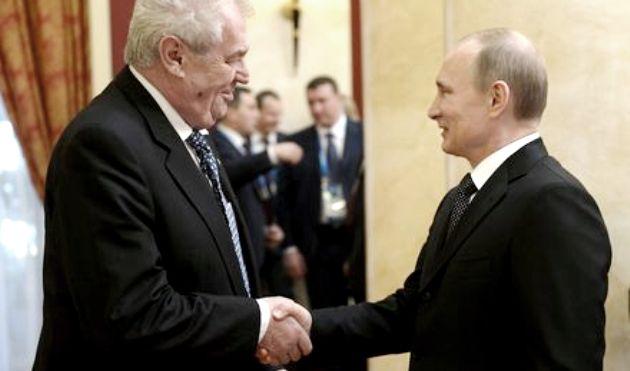Czech intelligence: "Pure pragmatists" overtaking traditional extremists could be exploited by the Kremlin

Traditional political extremists on the ultra-left and ultra-right are on the decline in the Czech Republic, according to the Security Information Service (Bezpečnostní informační služba – BIS). The numbers of their adherents are falling and they are connecting with the younger generation only minimally.
The demand for easy, fast solutions to political problems has simultaneously created room for attracting those who are pure pragmatists involved primarily in satisfying their own personal aims, according to BIS in its annual report for 2017. The service also believes the pro-Kremlin orientation of part of the extremist spectrum poses a threat.
The report describes last year’s transformation of what originally was an anti-immigration movement into an “anti-Government” one. “The anti-immigration part of the spectrum has found itself in a crisis caused not just by lack of unity, by the further splitting off of different groups, by the clashes between individual activists and their lack of willingness to collaborate with each other, but especially because the subject of immigration has run its course and stopped attracting the interest of the public,” the report says.
These activists, according to intelligence officers, have now focused on other themes that might spark an emotional reaction from the public and through which they might get publicity and the broadest possible support. Some extremists have continued to attempt to win popularity through anti-Muslim rhetoric.
The vast majority of such extremists have publicly declared their resistance to the Czech Republic remaining in the EU and NATO and have taken positive stances toward the politics of Russian President Vladimir Putin or have emphasized Czechs’ so-called “common Slavic characteristics” with Russia, BIS reports. Because of this strong pro-Kremlin orientation, according to the report, the risk still persists of these activists being exploited by Russian entities advocating Russian interests.
The activities of militia and paramilitary groups, however, did not pose an actual security threat to the democratic foundations of the country or to its security last year. BIS says such extremists have not radicalized, but that their activity has, on the contrary, declined.
“Apparently the most problematic security aspect flowing from the activities of militias and paramilitary groups consists of their pro-Russian orientation, due to which the risk has persisted that they could be exploited for the dissemination of pro-Russian propaganda,” BIS states. Representatives of the extreme right scene as traditionally conceived have been grappling with a crisis for several years now, according to the intelligence analysts.
The popularity of politically-engaged right-wing extremists and support for them has been absolutely minimal, and the interest of voters from the ranks of such right-wing extremists has, on the contrary, managed to be won by moderately radical or populist entities. Right-wing extremists have focused on criticizing the European Union, on protests against the current political representation, and on objecting to human rights activists and NGOs.
According to BIS, in many cases these right-wing extremists have found themselves in agreement with nationalists from the extreme-left scene. Once again, this has most significantly manifested as a positive view of the politics of Russian President Putin, but also in rejecting the Czech Republic’s membership in NATO or in a shared negative relationship toward Israel, according to the report.
BIS calls the extreme-left scene still strongly fragmented, without any outstanding figures to unite it any way, and the membership base of its platforms remains weak. The report also states that no direct actions involving anarchist militants were noted last year.
